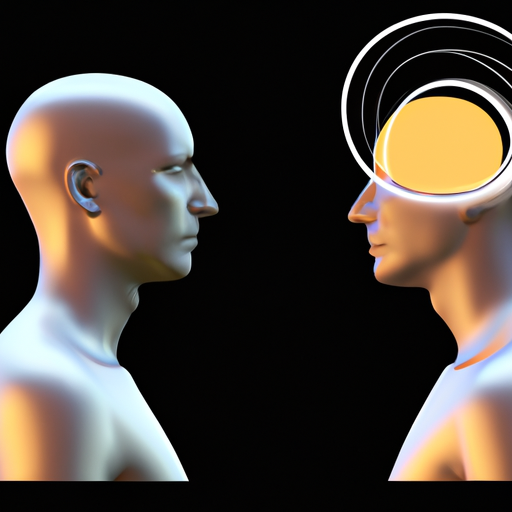
The Importance of Mindfulness in Managing Mental Health: Understanding the Connection
Mindfulness is a powerful tool that has gained significant attention in recent years for its ability to improve mental health. It is the practice of being fully present and aware of one’s thoughts, feelings, and surroundings without judgment. This state of mind has been shown to have numerous benefits for managing mental health, as it helps individuals to understand the connection between their thoughts, emotions, and behaviors.
One of the key benefits of mindfulness in managing mental health is its ability to reduce stress and anxiety. By being fully present in the moment, individuals can let go of worries about the past or future, and focus on the present. This can help to alleviate the constant rumination and overthinking that often leads to anxiety. Additionally, mindfulness can help individuals to recognize and acknowledge their thoughts and emotions without getting caught up in them. This allows for a objective and rational response to stressors, rather than a reactive one.
Furthermore, mindfulness can improve mood and overall well-being. By being present and fully engaged in the present moment, individuals can appreciate and savor the positive experiences in their lives. This can help to counteract the negative thoughts and emotions that often accompany mental health issues. Additionally, mindfulness can increase self-awareness and self-compassion, which are crucial components of managing mental health. By understanding one’s own thoughts and emotions, individuals can learn to be more accepting and kind to themselves, rather than being self-critical.
Another important aspect of mindfulness in managing mental health is its ability to improve
– This topic explores the relationship between mindfulness and mental health, discussing how practicing mindfulness techniques can positively impact one’s mental well-being.
Mindfulness has become a buzzword in recent years, with more and more people turning to this practice as a means of improving their mental health. But what exactly is mindfulness and how does it relate to our mental well-being?
In simple terms, mindfulness is the act of being fully present and aware in the present moment. It involves paying attention to our thoughts, feelings, and surroundings without judgment or distraction. This may sound like a simple concept, but in today’s fast-paced and constantly connected world, it can be challenging to truly be present and mindful.
So, how does mindfulness impact our mental health? Research has shown that practicing mindfulness techniques can have a positive effect on various aspects of our mental well-being. One of the key benefits of mindfulness is its ability to reduce stress and anxiety. By focusing on the present moment and letting go of worries about the past or future, we can alleviate the negative effects of stress on our minds and bodies.
Moreover, mindfulness can also help with depression. It allows individuals to observe their thoughts and emotions without getting caught up in them, thus reducing the power they have over our mood. By practicing mindfulness, we can learn to accept our thoughts and feelings without judgment, which can be especially beneficial for those struggling with depression.
Another way in which mindfulness can improve our mental health is by increasing our self-awareness. By being mindful, we can better understand our thoughts, emotions, and behaviors, and how they may be impacting our mental well-being. This self-aware
The Great Barrier Reef, located off the coast of Australia, is the world’s largest coral reef system and one of the most iconic natural wonders on the planet. Stretching over 2,300 kilometers, it is home to a diverse range of marine life and is a popular destination for tourists and researchers alike.
The Great Barrier Reef is made up of over 2,900 individual reefs and 900 islands, creating a vast and intricate ecosystem that is with life. It is home to over 1,500 species of fish, 30 species of whales and dolphins, 6 species of sea, and countless other marine creatures. The also provides a habitat for 215 species a birdwatcher’sThe reef’s vibrant and colorful coral is one of its most well-known form the backbone of and are responsible for its stunning array colors. The Great Barrier Reef is home to 400 different of coral, including brain coral, storn coral, and soft corals.als provide shelter and food for countless species of fish and other marine creatures, making them an essential part of the reef’s ecosystem.
addition to its diverse marine life, the Great is also home to a variety of plant species. The seagrass meadows that grow in the shallow waters of the reef provide vital food source for many animals, including dugongs and sea. The reef
Breaking the Stigma: Promoting Mental Health Awareness and Mindfulness
Mental health has long been a topic that is shrouded in stigma and silence. For far too long, individuals struggling with mental health issues have been met with judgment, discrimination, and a lack of understanding. This has led to a culture of shame and secrecy, preventing many from seeking the help and support they need.
However, in recent years, there has been a growing movement to break the stigma surrounding mental health and promote awareness and mindfulness. This movement is crucial in creating a society that is more compassionate and understanding towards those who are struggling with mental health issues.
One of the key ways to break the stigma is by promoting mental health awareness. This involves educating the public about mental health, its prevalence, and the different types of mental illnesses. Many people are unaware that mental health issues are common and can affect anyone, regardless of age, gender, or background. By increasing awareness, we can help to dispel the myths and misconceptions surrounding mental health and promote a more accurate understanding of these conditions.
Another important aspect of breaking the stigma is promoting mindfulness. Mindfulness is the practice of being present in the moment and non-judgmentally accepting one’s thoughts and feelings. It has been shown to be an effective tool in managing stress, anxiety, and depression. By promoting mindfulness, we can help individuals to better understand and manage their own mental health and well-being.
Furthermore, promoting mental health awareness and mindfulness can also help to create a more supportive and inclusive society. When we understand
– This topic delves into the negative stigma surrounding mental health and how practicing mindfulness can help break down these barriers and promote greater awareness and understanding.
Mental health has been a topic of great importance in recent years, with more and more people speaking out about their struggles and seeking help. However, despite the progress made in breaking down the stigma surrounding mental health, there still remains a negative perception and lack of understanding surrounding this topic. This stigma can be detrimental to those who are struggling with mental health issues, as it can prevent them from seeking the help and support they need. In order to combat this, it is important to promote greater awareness and understanding of mental health, and one way to do this is through the practice of mindfulness.
Mindfulness is the act of being fully present and aware of one’s thoughts, feelings, and surroundings in the present moment. It involves paying attention to the present moment without judgment, and accepting one’s thoughts and feelings without trying to change them. This practice has been shown to have numerous benefits for both physical and mental health, including reducing stress and anxiety, improving focus and attention, and promoting overall well-being.
One of the ways in which mindfulness can help down the negative stigma mental health is by promoting self-awareness and self-accept. Often, the negative comes from a lack of understanding and fear of the. By practicing mindfulness individuals can become more aware of their own thoughts and feelings and learn to accept them without judgment. This can lead to a greater understanding and acceptance of others who may be struggling with mental health issues, as well as a more compassionate and
In conclusion, incorporating mindfulness practices into our daily lives can greatly benefit our mental health. By being more present and aware of our thoughts and emotions, we can better manage stress, anxiety, and other mental health issues. Additionally, seeking professional help and support when needed is crucial in maintaining overall well-being. Let us prioritize our mental health and make mindfulness a regular part of our self-care routine. Remember, a healthy mind leads to a healthy life.
 the info way beauty Secrets and expert tips on skincare
the info way beauty Secrets and expert tips on skincare

